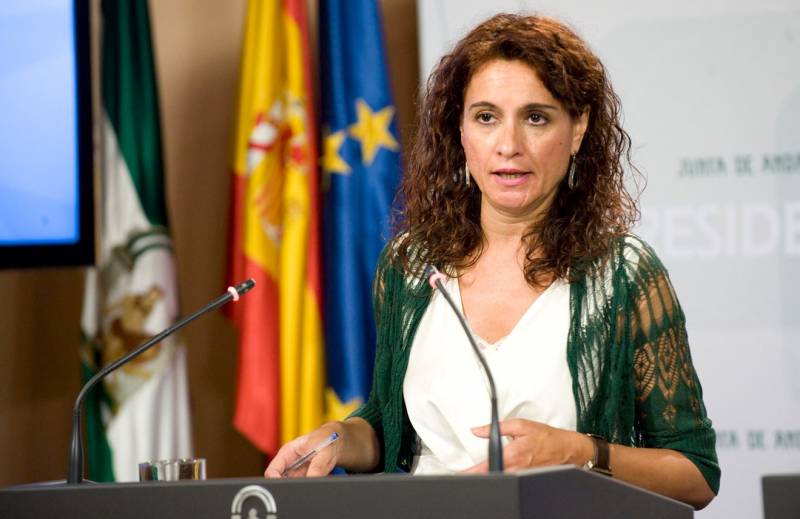article_detail
Date Published: 15/07/2022
ARCHIVED - Spain will fine banks and energy companies if they pass on tax hikes to consumers
The Spanish government aims to stop big business raising their prices, but admit there are loopholes

Spanish Finance Minister, María Jesús Montero
The Ministry of Finance in Spain is working against the clock to finalise two new taxes which were announced this week on the sky-high profits being made by energy companies and banks in the current crisis.
These two new taxes, which form part of a raft of new economic measures that include free rail travel, with which it hopes to raise 7 billion euros over the next two years.
The proposal launched by the President of the Government, Pedro Sánchez, this week in Congress during the debate on the state of the nation, consists of two new taxes: one for energy companies and another “temporary and exceptional” one for banks.
These will not be changes to existing corporate tax as initially speculated, but two new taxes that will be aimed at a small number of companies, those with a turnover of more than 1 billion euros.
The ministry remains secretive about the details of the new taxes, which it hopes will be ready to implement by the end of the year, because it wants to negotiate them with Unidos Podemos, its partner in government.
“This is the time to test the social commitment of big business,” Sánchez proclaimed last Tuesday from the rostrum of Congress, “so that any indirect benefits do not fatten the profit and loss account or the salaries of the directors.”
The Minister of Finance, María Jesús Montero, has made it clear that she is working to prohibit large energy companies and financial institutions from passing on the fiscal cost to their clients.
“In the regulation, we are planning to prohibit the passing on of this tax to the final price borne by citizens,” she said, “and the National Commission for Markets and Competition (CNMC) will be given all the functions to monitor and apply sanctions in the event that any company departs from the law.”
However, Treasury sources have acknowledged that in practice it is difficult to prevent companies from passing on raised costs to their customers because there are multiple legal avenues available to them to escape the regulator’s scrutiny. What’s more, both banks and energy companies have already suggested that they will appeal the taxes in the courts. In fact, the banking employers’ association has alleged that the measures generate “legal uncertainty”.
Montero justified the tax measures by saying that big energy companies are obtaining obscene profits because they’re produce electricity at a much lower cost than the price quoted on the market, and said the new taxes hope to “redistribute the social burden”.
“Those who earn the most should be those who contribute the most to the common coffers,” she said.
The tax on large energy companies will be applied for two years on profits recorded in 2022 and 2023, with the aim of raising 2 billion euros a year. The government is basing it on the tax approved by the former Italian Prime Minister, Mario Draghi, who has actually offered to resign today after failing to keep his government coalition together.
Image: Wikimedia commons
Loading
Sign up for the Spanish News Today Editors Roundup Weekly Bulletin and get an email with all the week’s news straight to your inbox
Special offer: Subscribe now for 25% off (36.95 euros for 48 Bulletins)
OR
you can sign up to our FREE weekly roundup!
Read some of our recent bulletins:
Discount Special Offer subscription:
36.95€ for 48 Editor’s Weekly News Roundup bulletins!
Please CLICK THE BUTTON to subscribe.
(List price 3 months 12 Bulletins)
Read more stories from around Spain:
Contact Spanish News Today: Editorial 966 260 896 /
Office 968 018 268





























